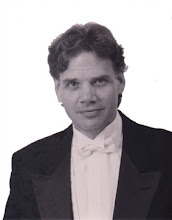As preparation for our course, we've been engaging in collaborative projects ourselves this summer. Here are a few works-in-progress. I wrote these short piano pieces to some verses that Dean Bakopoulos wrote. This is just a sort of demo/progress report, not ready for prime time. It's meant to give an idea of the collaborative creative process that we're pursuing. I recorded them at home just a few minutes after I wrote them.
New lovers: One insomniac at a kitchen sink;
staring out at the shadows and streetlamps.
Upstairs, the one sleeping knows nothing of it.
Oh she sleeps and she sleeps and she sleeps.
Dean Bakopoulos
Dean Bakopoulos
Listen to "Heavy Crows on Soundcloud (John Rommereim, piano)
All still, then not still, the dusk shimmers
a million exhausted leaves, shaking with heavy crows.
After midnight one bird awakened,
outside, he tweets: I
believe I believe I believe.
Dean Bakopoulos
Here's another piece from this set of miniatures. In this piece, I was trying to get the piano to produce different vowel sounds. I use my fingernail on the string to create an effect that is something like a jaw harp. If you listen carefully, I hope that you can sometimes hear these diferent sounds in the bass repeated notes (sort of "ee-aw-ee-aw"). You could also think of it as sort of overtone singing for the piano. I recorded this one at home like the others, just a few minutes after making it up.
Here's a piece to go with this poem by Dean Bakopoulos:
Listen to The Things You Think You'll Miss on Soundcloud
Here's another one to go with this poem:
You can play the set of pieces on Soundloud (click on "Collaborative Piano Miniatures").
Here's a piece to go with this poem by Dean Bakopoulos:
You never miss the things you think you’ll miss
you never need the things you think you’ll need
what you miss is the quiet years spent dreaming,
all the dreams, all the dreams, all the dreams.
Listen to The Things You Think You'll Miss on Soundcloud
One fragment dances down the hallway in silence,
another fragment lodges in your inner ear.
Here’s a trumpet, of salvation, and it’s blowing,
all the years, all the years, all the years.

